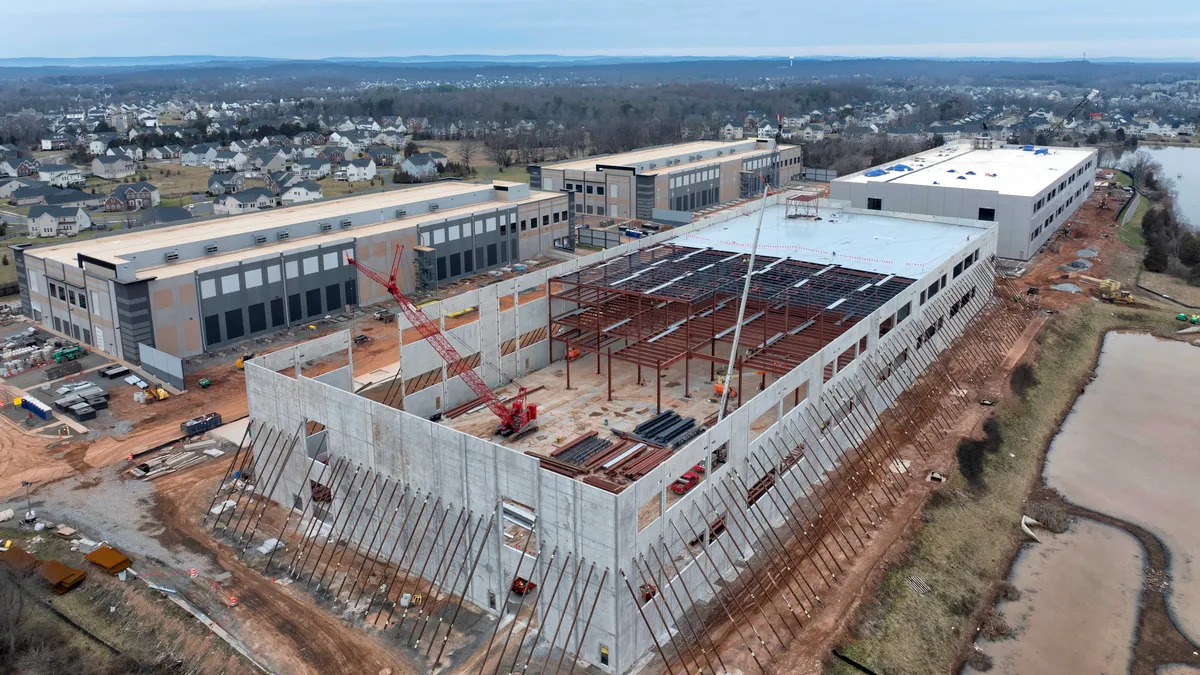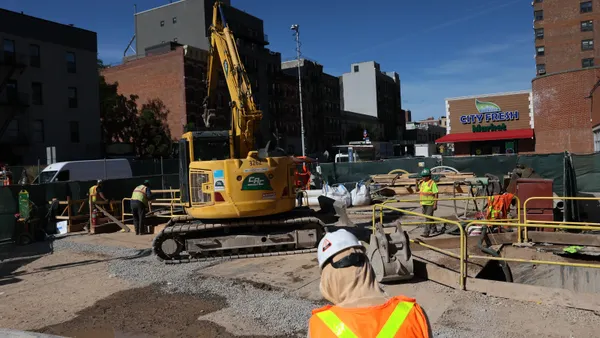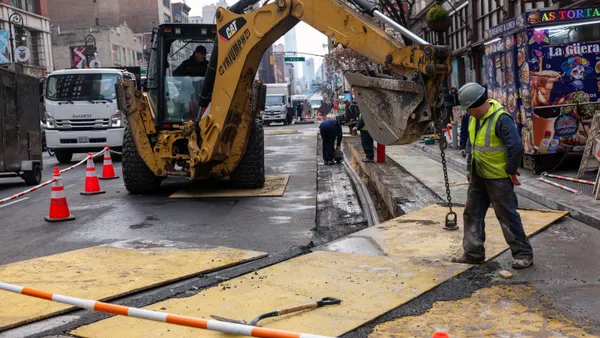Dive Brief:
- The U.S. construction industry added 36,000 net new jobs in January, with the lion's share of more than 26,000 being added in the specialty trade segment, according to the Bureau of Labor Statistics. Construction employment grew by 226,000 positions over the last 12 months.
- The nonresidential sector slid in January, decreasing by 2,300 jobs for the month. The slide, according to Associated Builders and Contractors (ABC) Chief Economist Anirban Basu, could be attributed to market saturation in certain parts of the country. Heavy and civil engineering grew by 6,300 new new jobs, which Basu said could indicate a lift in public construction spending.
- Though strong employment figures point to industry strength in the near future, contractors should monitor inflation that could push material and labor prices higher, a rise in interest rates and volatile stock prices, Basu noted.
Dive Insight:
As construction employment continues to rise across much of the country, there are ongoing concerns about contractors' ability to find enough qualified labor.
In his State of the Union address last month, President Donald Trump expressed the need for workforce training and new vocational schools. The acknowledgment recognized that contractors are struggling to fill positions, but perhaps also came in anticipation of the Trump administration's $1.5 trillion infrastructure program that is likely to add strain to the lagging skilled labor pool.
Earlier in his administration, the president said one of the infrastructure plan's goals would be to create five million apprenticeships in five years. As it stood in June, funding for certain job training programs would be cut — some as high as 40% — to pay for the program.
But creating more avenues for training might not even be half the battle. The bigger challenge could be convincing younger people that a career in construction is worth pursuing. In April, the National Association of Home Builders found that only 3% of adults ages 18 to 25 surveyed by the association had chosen to enter construction as their career. Of those undecided about their career paths, 63% said there was a small or no chance of them pursuing a job in the industry.












